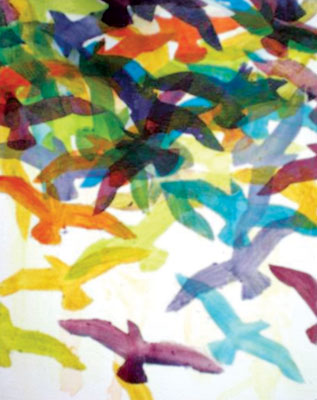All Nonfiction
- Bullying
- Books
- Academic
- Author Interviews
- Celebrity interviews
- College Articles
- College Essays
- Educator of the Year
- Heroes
- Interviews
- Memoir
- Personal Experience
- Sports
- Travel & Culture
All Opinions
- Bullying
- Current Events / Politics
- Discrimination
- Drugs / Alcohol / Smoking
- Entertainment / Celebrities
- Environment
- Love / Relationships
- Movies / Music / TV
- Pop Culture / Trends
- School / College
- Social Issues / Civics
- Spirituality / Religion
- Sports / Hobbies
All Hot Topics
- Bullying
- Community Service
- Environment
- Health
- Letters to the Editor
- Pride & Prejudice
- What Matters
- Back
Summer Guide
- Program Links
- Program Reviews
- Back
College Guide
- College Links
- College Reviews
- College Essays
- College Articles
- Back
A Panama Adventure MAG
Apprehension flooded my stomach as the plane touched down in Panama. I had visited the country before and loved it, but this was not a vacation. We were moving here for an entire year. My uncle would be living here as a scientist for the Smithsonian Tropical Research Institute, and my parents decided to go too since they wanted to live somewhere new. I did not share their sentiment. At 12, I was far more interested in fitting in with my friends at my small middle school than with this “life changing” experience. I thought
I would hate everything about it. It hadn't occurred to me that this experience truly would change my life.
I come from a small town of 6,000 people, nestled between the sea and the mountains in western Washington. Arriving in Panama, the heat greeted me like a furnace, and once I adjusted to that, the noise, color, and constant motion jarred my senses.
Begrudgingly at first, I fell into the rhythm of my new life on the edge of the jungle in Gamboa. Our community was brimming with young scientists from all over the world studying different aspects of the tropical ecosystem. They were passionate about bats, birds, trees, butterflies, and leaf-cutter ants, and their excitement and enthusiasm soon infected me. One of the postgraduates offered me an internship helping with her antbird project. My biology textbook came to life as we sat around sharing our observations. I realized that if I found and followed my passions, my work could bring me joy, community, and a sense of purpose. As I became engaged with my life in Panama, I no longer worried about what I was missing at “home.”
When my family visited Kuna Yala in January, my cultural education expanded. This is a semi-autonomous state inhabited by the Kuna Indians on an archipelago along the Caribbean coast. The inhabitants are either crammed together on densely populated islands or living in relative isolation in small family groups on remote, smaller islands. There are no cars or electricity. Dugout canoes are the main mode of transportation. Kids run everywhere, chasing and kicking soccer balls. The people are extremely joyful and affectionate with one another, despite the absence of the material goods that define our lives in the United States. I recognized how family and friends make a person happy, not possessions.
I was so lucky to befriend a young Wounaan girl my age named Kenia. She lived with her family in a thatched hut along the Charges River. I had met her on a previous trip to Panama when she and her mother came by our house selling baskets. Later, back in Washington as a fifth-grader, I initiated a penny drive to help the children of her village attend school. We raised over $2,000. Now visiting her village two years later, I saw how much the community valued our contribution, greeting us with gratitude. By boat, then public bus and foot, Kenia traveled two hours each morning to go to school in the city. It was humbling to see the high value she placed on her education and the sacrifices she made without any sense of the entitlement and cynicism I often saw at home.
I returned to Washington invigorated. My initial worries about my year-long absence felt ludicrous as I reflected on my rich experience. My view of the world and all its possibilities, as well as what I value, have forever changed. I entered high school fully engaged, determined to avail myself of all that my school and community can offer.
Now, four years later and leaving the nest that has nurtured me, I am enthusiastic beyond words as I embrace new adventures and opportunities.

Similar Articles
JOIN THE DISCUSSION
This article has 1 comment.

16 articles 0 photos 7 comments
Favorite Quote:
"Either write somehting worth reading, or do something worth writing."-Benjamin Franklin